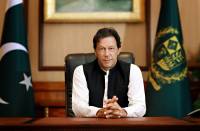In geopolitical relations, partnerships are formed as much on the basis of having shared goals as they are on the basis of facing shared challenges. While the modern histories of Iran and Turkey are highly divergent and while prior to the 20th century the Ottoman and Persian empires were great rivals, today, circumstance has drawn Ankara and Tehran closer than at any time prior to 1979.
The most immediate cause of the expanding partnership between Iran and Turkey is a desire on the part of both nations to expand their economic avenues within the wider Eurasian space. This is the case in respect of Turkey as the country looks to make inroads into markets that had been neglected in recent decades while for Iran, the desire to ‘look east and south’ has been motivated primarily by a post 1979 history of being largely cut off from western markets in spite of recent efforts of the European Union to preserve the status quo of the JCPOA (Iran nuclear deal) era.
Now though, both nations find themselves on the receiving end of measures that Turkey’s President Erdogan has described as “economic warfare” from the US. In the case of Iran, the country will soon feel the impact of new sanctions coming into force in line with Washington’s unilateral withdrawal from the 2015 JCPOA. At the same time, Washington has doubled its steel and aluminium tariffs against Turkey, something which is significant as Turkey is among the top ten steel importers to the US. This when combined with Washington’s sanctioning of the Turkish Justice Minister and Interior Minister as well as a Tweet from Donald Trump proclaiming that the current state of US-Turkey relations is poor, makes it clear that the recent economic measures taken against Turkey have been punitive rather than overtly strategic in nature.
The result of the aforementioned mechanisms of hybrid economic warfare in addition to speculation against both the Turkish Lira and Iranian Rial has meant that both nations have found that the US has caused a profound domestic inflationary spiral while working to cut of the international trading outlets of both nations. This is significant as Turkey is one of the few nations to run a trade deficit with the US, while Iran relies on many American partners including India as customers for oil and gas.
Against this background, both Turkey and Iran have drawn closer to each other, in spite of being on notably different sides during much of the Syrian conflict. Today, Turkey continues to restate its pledge to continue transacting business with Iran even when the full force of US sanctions against the Islamic Republic kick in. Although the US has threatened to level second party sanctions against all nations that continue to trade with Iran, Ankara has been resolute in defying these threats from Washington.
Now that Turkey has come under de-facto sanctions from the US in the form of the doubled steel and aluminium tariffs while furthermore, two major Turkish officials are on the receiving end of direct so-called Magnitsky style sanctions, Iran has come out in full support of Turkey. According to Iranian Foreign Minister Javad Zarif
Trump’s jubilation in inflicting economic hardship on its NATO ally Turkey is shameful. The U.S. has to rehabilitate its addiction to sanctions & bullying or entire world will unite — beyond verbal condemnations — to force it to.
We’ve stood with neighbours before, and will again now”.
Trump's jubilation in inflicting economic hardship on its NATO ally Turkey is shameful. The US has to rehabilitate its addiction to sanctions & bullying or entire world will unite—beyond verbal condemnations—to force it to. We’ve stood with neighbors before, and will again now.
— Javad Zarif (@JZarif) August 11, 2018
This comes at a time when the PKK terror group’s Iranian branch PJAK continues to heighten tensions in north-western Iran. As a result, Iran and Turkey are not only threatened by similar hybrid economic warfare from the US, but both countries are also now threatened by a terror group whose Syrian division YPG, the US is actively allied with in Syria.
Just as Iran and Pakistan share a common enemy in the form of terrorists operating in the Pakistani province of Balochistan and the neighbouring Iranian province of Sistan and Baluchestan, so too do Iran and Turkey share a same cross-border enemy on the other side of the country in the form of the radical Kurdish terror group PKK and its Iranian branch PJAK.
Iranian authorities have announced the murder of 10 Islamic Revolutionary Guards stationed in the Iran’s Marivan district near the Iraqi border. According to an official statement,
“The attack by the evil rebels and terrorists against a revolutionary border post and the explosion of a munitions depot caused the martyrdom of 10 fighters”.
This vicious act of terrorism ought to serve as a signal that it is necessary for Iran and Turkey to intensify their security partnership against a singular threat.
Given that Iran faces the same threat to its security and unity that Turkey faces, one would assume that it would behove Iran to publicly offer support for Turkey’s operations against the PKK near Iran’s border. Furthermore, as Iran is keen to retain its presence in Syria against the objections of both the United States and Russia, Iran coming out in opposition to the YPG/PKK’s presence in northern Syria could not only strengthen bonds between Tehran and Ankara but could convince many of those calling for Iran’s withdrawal from Syria to at least soften their tone. This would be the case because while Russia has clearly green-lighted Turkey’s anti-YPG/PKK Operation Olive Branch in northern Syria, now even the US has decided to work with rather than against Turkey in the form of cooperating on an anti-YPG/PKK roadmap for Manbij and other parts of Syria under YPG/PKK occupation - at least for the time being. Thus, if Iran were to align itself with a move conducted by Turkey which is obviously endorsed by Russia, while also being a move which is no longer opposed (at least on paper) by Turkey’s fellow NATO member the United States, it would be difficult to present a logical (key word) anti-Iran argument in the Syria context if Iran offered its support to bringing stability to northern Syria.
In many ways, Turkey is already Iran’s most valuable regional partner and recent indications are that the partnership is already being strengthened now that Turkey and Iran face similar economic and security challenges which are largely from the same sources.
The time therefore is right for both countries to strengthen their partnership even further, not least because the Syrian conflict which had been a source of disagreement between the two nations is now drawing to a close as Russia, Iran and Turkey all cooperate to foment a peaceful settlement to the conflict in the Astana format.
Turkey and Iran may have very different and at times confrontational histories, but the win-win mentality of the 21st century is the one thing that can help both neighbours develop a more positive relationship that will help create a more hopeful future for both the Iranian and Turkish peoples. The partnership has undoubtedly been strengthened by recent events, but more can yet be done to build further trust and cooperative mechanisms to ensure a long lasting positive partnership.



